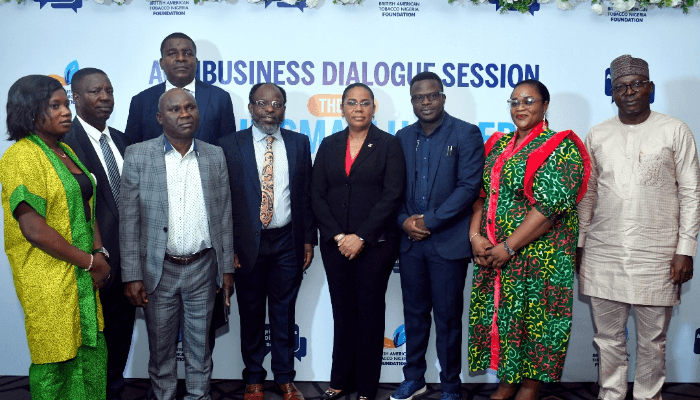Experts are calling for affordable credit options for millions of smallholder farmers in Nigeria to boost agricultural productivity and food production.
The experts argued that smallholder farmers, who make up about 80 percent of the farming population, are the bedrock of job creation and national economic growth in Africa’s most populous nation.
At the recent agribusiness dialogue session organised by the British American Tobacco Foundation (BATNF) with the theme, ‘Is the Smallholder Farmer Really Financeable’, several farmers and agribusiness owners tackled the false notion that smallholder farming is not profitable enough to justify investment.
Read also: FG promises to enhance farmers credit incentives, land registration, and a single platform
“Our task is to ensure that smallholder farmers are not only financeable but also resilient, thriving, and recognised as critical to Nigeria’s growth story,” said Halimat Shuaibu, executive director of BATNF, highlighting the foundation’s mission.
“Agriculture must move from being seen as a survivalist venture to a strategic driver of national wealth,” she added.
In the bid to ensure smallholder farmers are not only financeable but also become resilient and recognised as critical to Nigeria’s growth story, stakeholders also stressed that while agribusinesses are financeable, financing must be unavoidably combined with knowledge, innovation, and access to markets to ensure farmers can move from subsistence to commercial viability.
On his part, Oludare Odusanya, general manager of BATN, emphasised that the real test of financeability lies in moving from theory to practice.
He noted that smallholder farmers must be seen not as passive recipients of aid but as active partners in Nigeria’s economic transformation.
“For too long, conversations around smallholder farmers have centred on limitations rather than possibilities. At BATNF, we see finance as just one piece of the puzzle. True empowerment happens when financing is coupled with knowledge, innovation, and access to markets,” he said.
“Our mission is to close these gaps so that smallholder farmers are no longer defined by dependency, but recognised as the true engines of Nigeria’s agribusiness economy,” Odusanya added.
Smallholder farmers represent over 40 million people and produce about 80 percent of Nigeria’s food. They are the backbone of the country’s food security and rural economy. Yet they face mounting challenges as international aid and donor-driven interventions decline.
Ademola Adenle, senior special adviser on Agricultural Innovation to the Lagos State minister of Agriculture and Food Security, debunked the notion that smallholder farmers merely seek grants.
He emphasised the need for innovative financing solutions underpinned by credible farmer data and transparent systems.
Noting that: “Every kobo invested in smallholder farmers is not charity. It is one of the smartest investments we can make today because agriculture remains the surest driver of jobs, innovation, and resilience.”
Similarly, Abiodun Sosanya, general manager of the National Agriculture Development Fund, noted that because these farmers produce more than half of Nigeria’s food, tailored, non-collateral lending must be prioritised by financial institutions.
Read also: Nigeria Onion farmers lose billions of naira to substandard seeds
He called for robust farmer databases, stronger collaboration between stakeholders, and improved rural infrastructure.
Samson Ogbole, chief executive officer of Eupepsia Place Limited, stressed that financing without knowledge is futile.
“We can’t finance ignorance. Farmers need knowledge, hubs, and business-minded models that reduce risks and enable shared growth,” Ogbole, who is popularly known as the wizard farmer, said, pointing to public-private partnerships as key to agricultural transformation.
The event also featured a fireside chat with Adetola Oniyelu, project manager, BATNF and Atinuke Lebile, co-founder of Cato Foods, who reinforced the need for capacity building and alignment between policy frameworks and grassroots realities.
Winners of the 2025 Farmers for the Future (F4F) competition were announced at the event.
The 2025 Dialogue concluded with a call for urgent, coordinated action to ensure Nigeria’s smallholder farmers are empowered with the financing, tools, and markets they need to thrive.
Stakeholders agreed that sustainable agriculture is not just a sectoral priority but a national imperative for food security, employment, and inclusive growth.









